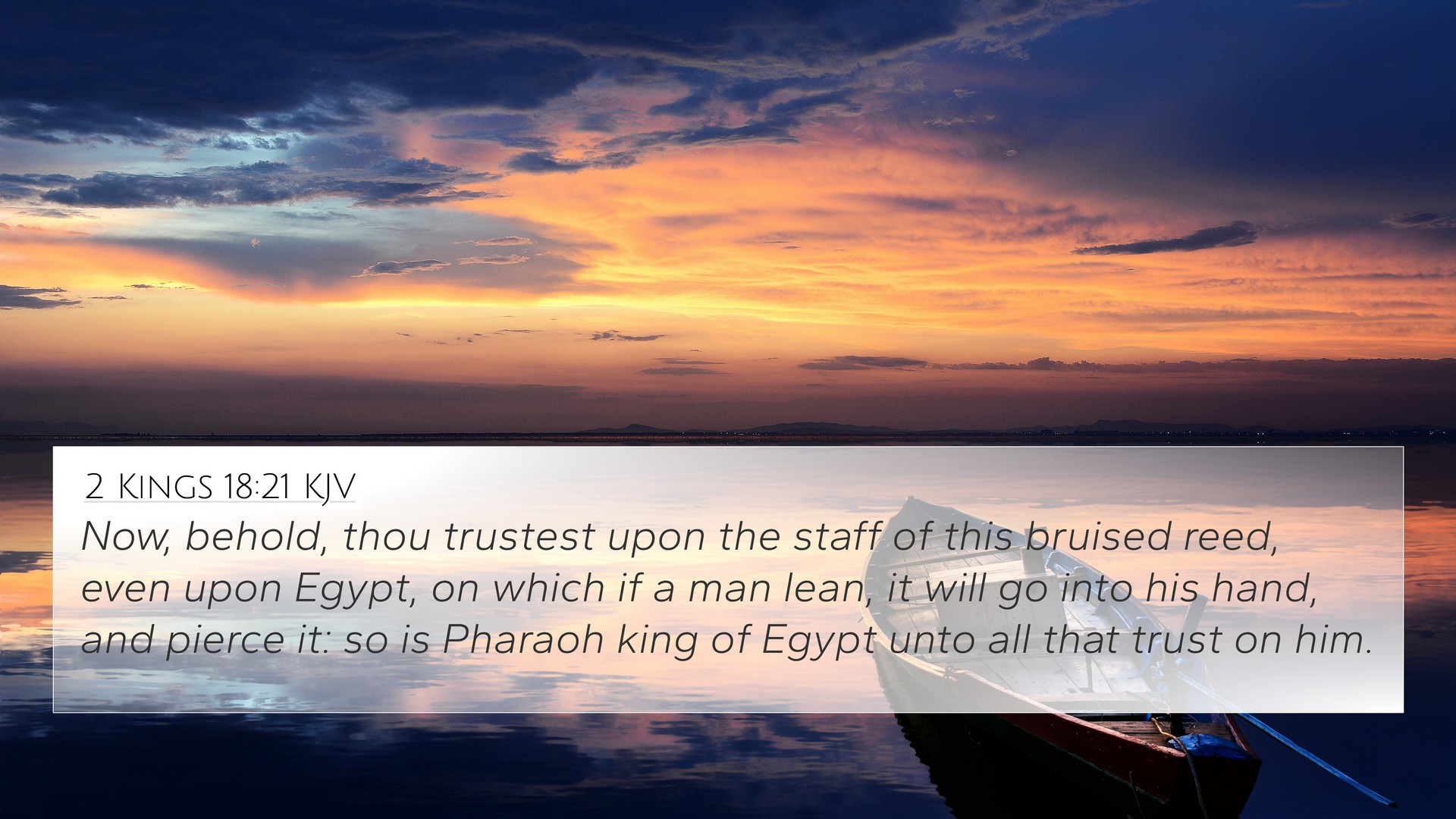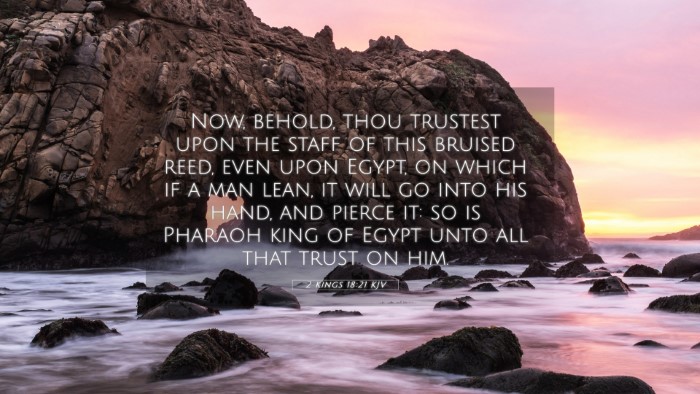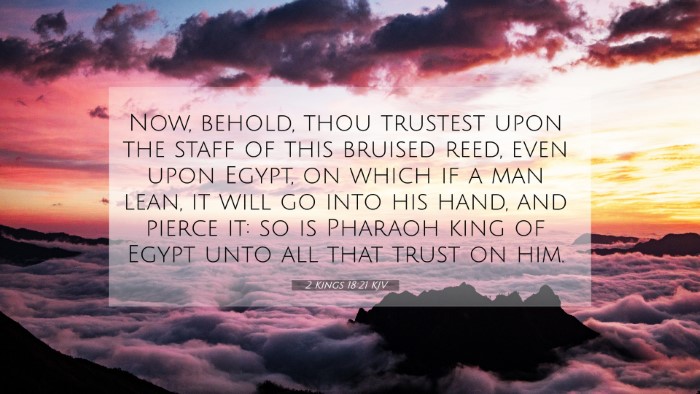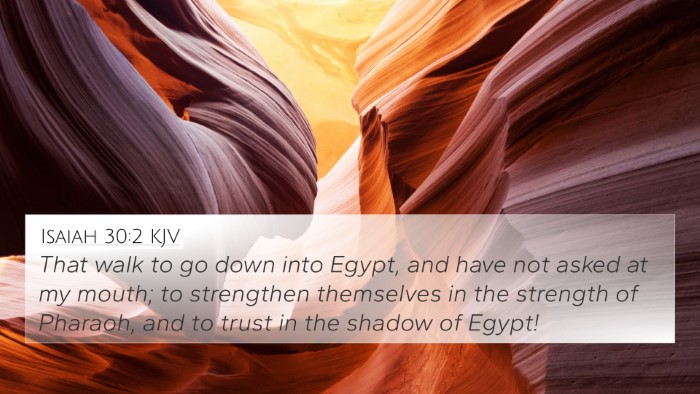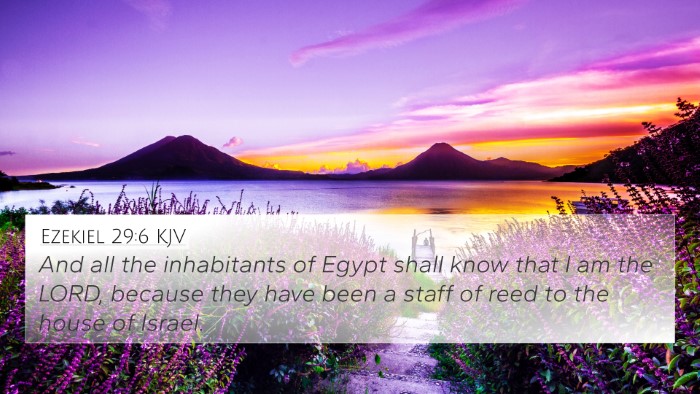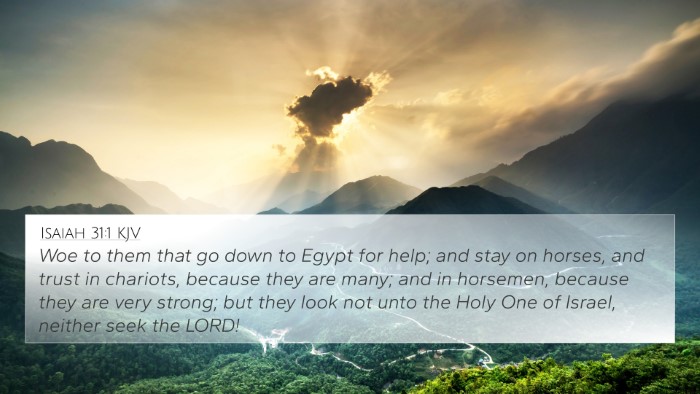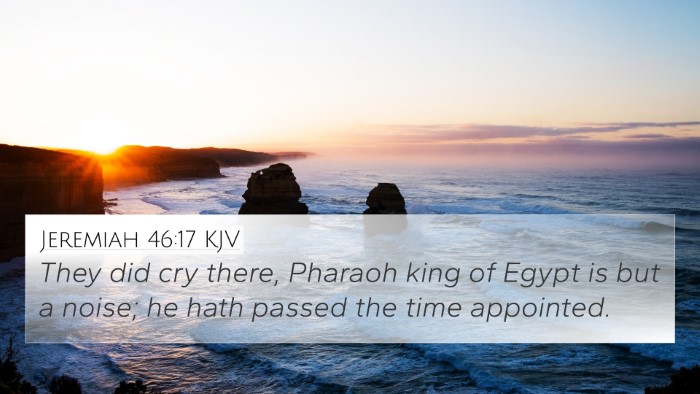Understanding 2 Kings 18:21
Verse: 2 Kings 18:21 - "Now, behold, thou trustest upon the staff of this bruised reed, even upon Egypt, on which if a man lean, it will go into his hand, and pierce it: so is Pharaoh king of Egypt to all that trust on him."
Context and Overview
This verse appears within a critical moment during the reign of King Hezekiah of Judah and highlights the futility of relying on Egypt for assistance against Assyria. It utilizes the metaphor of a "bruised reed" to illustrate the weakness of trusting in human alliances rather than relying on God.
Commentary Insights
Various public domain commentaries shed light on this text:
-
Matthew Henry:
Henry emphasizes the metaphor of the bruised reed, which represents Egypt's inability to provide genuine support. Just as one would not lean on such a fragile object, Judah should not depend on Egypt. He points out that relying on political alliances can lead to disappointment and ruin.
-
Albert Barnes:
Barnes highlights the foolishness of trusting in Pharaoh, labeling Egypt as unreliable and destructive. He elaborates on the imagery, noting that while a reed may appear strong, it is ultimately incapable of bearing weight. Therefore, any trust placed in Egypt is misguided.
-
Adam Clarke:
Clarke provides additional context by explaining the historical relationship between Judah and Egypt. He argues that the appeal to Egypt for help reflects a lack of faith in God's promises, urging that true safety lies in divine rather than human intervention.
Bible Cross-References
This verse connects with several other scriptures that reinforce its message:
- Isaiah 30:3: "Therefore shall the strength of Pharaoh be your shame, and the trust in the shadow of Egypt your confusion."
- Jeremiah 2:36: "Why gaddest thou about so much to change thy way? thou also shalt be ashamed of Egypt, as thou wast ashamed of Assyria."
- Psalm 146:3: "Put not your trust in princes, nor in the son of man, in whom there is no help."
- Proverbs 25:19: "Confidence in an unfaithful man in time of trouble is like a broken tooth, and a foot out of joint."
- Isaiah 31:1: "Woe to them that go down to Egypt for help; and stay on horses, and trust in chariots..."
- Isaiah 36:6: "Lo, thou trustest in the staff of this broken reed, on Egypt..."
- Deuteronomy 17:16: "But he shall not multiply horses to himself, nor cause the people to return to Egypt, to the end that he should multiply horses..."
Thematic Connections
The thematic connections from this verse reflect a broader biblical narrative regarding faith and dependence on God versus human alliances:
- The Promise of Divine Protection: Trusting in God’s promise (Psalm 91) is in contrast to seeking aid from fallible human sources.
- Lessons from Israel's History: Historical failures when Israel relied on foreign nations showcase the recurrent theme of misplaced trust.
- Faith vs. Fear: The tension between fear of foreign powers and faith in God’s sovereignty is evident throughout the scriptures.
Application and Reflection
This verse serves as a powerful reminder to believers about where to place their trust. It challenges the faithful to reflect critically on their reliance on worldly systems and encourages a deeper faith in God's provision and care.
Tools for Bible Cross-Referencing
To delve deeper into the connections between Bible verses, consider utilizing the following tools:
- Bible Concordance: A helpful resource for finding related verses and themes.
- Bible Cross-Reference Guide: Provides a systematic approach to identifying scriptural connections.
- Cross-Reference Bible Study: A methodology for exploring relations between passages, enhancing understanding.
- Bible Chain References: A technique enabling a seamless flow from one verse to another based on thematic connections.
Conclusion
Understanding 2 Kings 18:21 not only enriches one's personal faith but also highlights the importance of scriptural cross-referencing. By identifying connections and parallels with other biblical texts, believers can cultivate a robust understanding of the themes of faith, reliance, and divine sovereignty. Such reflections are essential for deepening one's spiritual journey and ensuring that trust is rightly placed in the faithfulness of God.
